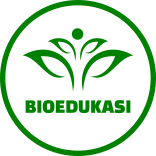The Analysis of Formative Assessment Needs in the Form of a Biology Comic Based on Problem-Based Learning to Train Critical Thinking Skills and Improve the Learning Outcome for Senior High School Students
DOI:
https://doi.org/10.19184/bioedu.v22i3.50539Keywords:
Biology Comic, Critical Thinking Skill, Formative Assessment, Learning Outcome, Problem Based LearningAbstract
The objective of this research is to comprehend the need for formative assessment in the form of Biology comics based on the PBL learning model. This comic intends to train critical thinking skills and improve students’ learning outcomes. A needs analysis was carried out by distributing questionnaires to senior high school students at MAN 2 Kota Malang, SMAN 5 Malang, and SMAN 7 Malang. Questionnaires were also distributed to students freely via social media. Moreover, interviews were also conducted with Biology teachers in MAN 2 Kota Malang. Another supporting data was the critical thinking skill test. The questionnaire results indicated that 70% of students needed these comics. Besides, Biology teachers also had a positive response to the variety of formative assessments in the form of Biology comics. The supporting data for the critical thinking test also showed the low category of 49.01 out of a maximum score of 100. Thus, it can be concluded that senior high school students need a variety of formative assessments in the form of Biology comics to train their critical thinking skills and improve their learning outcomes.
Downloads
References
Arends, R. I. (2012). Learning to Teach. 9th ed. In McGraw-Hill Companies,Inc. (Vol. 66).
Barokah, U. S. (2014). Pengembangan Komik Digital Berbasis Nilai Karakter Sebagai Media Pembelajaran Akuntansi Pada Kompetensi Dasar Menyusun Laporan Keuangan Perusahaan Jasa Untuk SMA Kelas
XI. Fakultas Ekonomi Universitas Negeri Yogyakarta.
Daryanto. (2010). Media Pembelajaran. Yogyakarta: Gava Media.
Fadhilla, Ananta Syahran. “Persiapan Pendidikan di Indonesia Menghadapi Revolusi Industri 5.0.†PROSIDING SEMINAR NASIONAL LINGKUNGAN LAHAN BASAH, vol. 7, no. 2, 2022. snllb.ulm.ac.id https://snllb.ulm.ac.id/prosiding/index.php/snllb-lit/article/view/739.
Greenstein, L. M. (2012). Assessing 21st century skills: A guide to evaluating mastery and authentic learning. Corwin Press
Gumelar, M. S. (2010). Comic making: Membuat komik. An1mage.
Haka, N. B. (2020). Pengembangan komik Manga Biologi berbasis Android untuk peserta didik Kelas XI ditingkat SMA/MA. Journal Of Biology Education, 1(1), 17-32.
Harlen, W. (2001). The assessment of scientific literacy in the OECD/PISA project.
Irnaningtyas. (2018). Biologi untuk SMA/MA Kelas XII (Kurikulum 2013 Revisi). Jakarta: Erlangga
Lase, Delipiter. “Pendidikan Di Era Revolusi Industri 4.0.†SUNDERMANN: Jurnal Ilmiah Teologi,Pendidikan, Sains, Humaniora Dan Kebudayaan, vol. 12, no. 2, November 2019, hlm. 28–43. www.jurnal.sttsundermann.ac.id, https://doi.org/10.36588/sundermann.v1i1.18.
Lo Piano, S. (2020). Ethical principles in machine learning and artificial intelligence: cases from the field and possible ways forward. Humanities and Social Sciences Communications, 7(1), 1-7.
Mardiana, N. (2017). Peningkatan physics hots melalui mobile learning (mobile learning to improve physics hots). PASCAL (Journal of Physics and Science Learning), 1(2), 1-9
.McCloud, S. (2001).Understanding comics. Jakarta: Kepustakaan Populer Gramedia
Munadi, Y. (2010). Media Pembelajaran. Jakarta: Referensi.
Munadi, Y. (2013). Media Pembelajaran. Jakarta: Referensi
Nurul, M. (2023). Pengembangan LKPD Saintifik Berbasis Komik pada Pembelajaran IPA Kelas V SDN 21 Ampenan (Doctoral dissertation, Universitas Mataram).
Qisthi, C. U., Abidin, Z., & Sulistyono, S. (2023). Pengembangan Instrumen Literasi Numerasi Biologi Pada Pembelajaran IPA Dalam Materi Sistem Pernapasan Pada Manusia. Jurnal Ilmiah Wahana Pendidikan, 9(22), 191-202.
Retno, R. S. & Choirunisa, M., Prasasti, P. A. T., (2023). PENGGUNAAN MEDIA PEMBELAJARAN KOMIK DIGITAL PADA PEMBELAJARAN IPA SISWA SEKOLAH DASAR. Pendas: Jurnal
Ilmiah Pendidikan Dasar, 8(2), 356-364.
Rhem, J. (1998). Problem based learning: An introduction. The National Teaching & Learning Forum, 8(1).
Saputra, E B., & Gradini, E., Firmansyah, (2020). Mendesain Tes Literasi Matematis Menggunakan Soal PISA Like Konteks Kultur Lokal. Jurnal Ilmiah Pendidikan Matematika Al Qalasadi, 5(1), 29-43.
Savery, J. R. (2006). Overview of problem-based learning: Definitions and distinctions. Essential readings in problem-based learning: Exploring and extending the legacy of Howard S. Barrows, 9(2), 5-15.
Sugiyono. 2011. Metode Penelitian Administrasi: Dilengkapi Metode R&D. Bandung: Alfabeta
Tamblyn, R., Abrahamowicz, M., Dauphinee, W. D., Hanley, J. A., Norcini, J., Girard, N., ... & Brailovsky, C. (2002). Association between licensure examination scores and practice in primary care. Jama, 288(23), 3019-3026.
Wahidin, Elin Panca, dkk. “Pelatihan Pemanfaatan Efek Animasi PowerPoint Sebagai Pengembangan Konten Pembelajaran Interaktif Pada TPQ Nurul Jihad.†Jurnal Abdimas BSI: Jurnal Pengabdian Kepada Masyarakat, vol. 6, no. 2, Agustus 2023, hlm. 239–46. ejournal.bsi.ac.id, https://doi.org/10.31294/jabdimas.v6i2.14523.
Wulandari, D. R. (2017). Pengembangan Media Pembelajaran Katalog Digital Berbasis Problem Based Learning pada Materi Hidrosfer untuk Meningkatkan Kemampuan Berpikir Kritis dan Berpikir Analitis Peserta Didik (Kelas X SMA MTA Surakarta Tahun Pelajaran 2016/2017) (Doctoral dissertation, UNS (Sebelas Maret University)).
Yonanda, D. A., Yuliati, Y., & Saputra, D. S. (2019, December). Development of Problem-Based Comic Book as Learning Media for Improving Primary School Students' Critical Thinking Ability. In Elementary School Forum (Mimbar Sekolah Dasar) (Vol. 6, No. 3, pp. 341-348). Indonesia University of Education. Jl. Mayor Abdurachman No. 211, Sumedang, Jawa Barat, 45322, Indonesia. Web site: https://ejournal. upi. edu/index. php/mimbar/index.
Downloads
Published
Issue
Section
License
Copyright (c) 2024 Bidari Intan Rucitra, Murni Sapta Sari, Sofia Eri Rahayu

This work is licensed under a Creative Commons Attribution-NonCommercial-NoDerivatives 4.0 International License.





